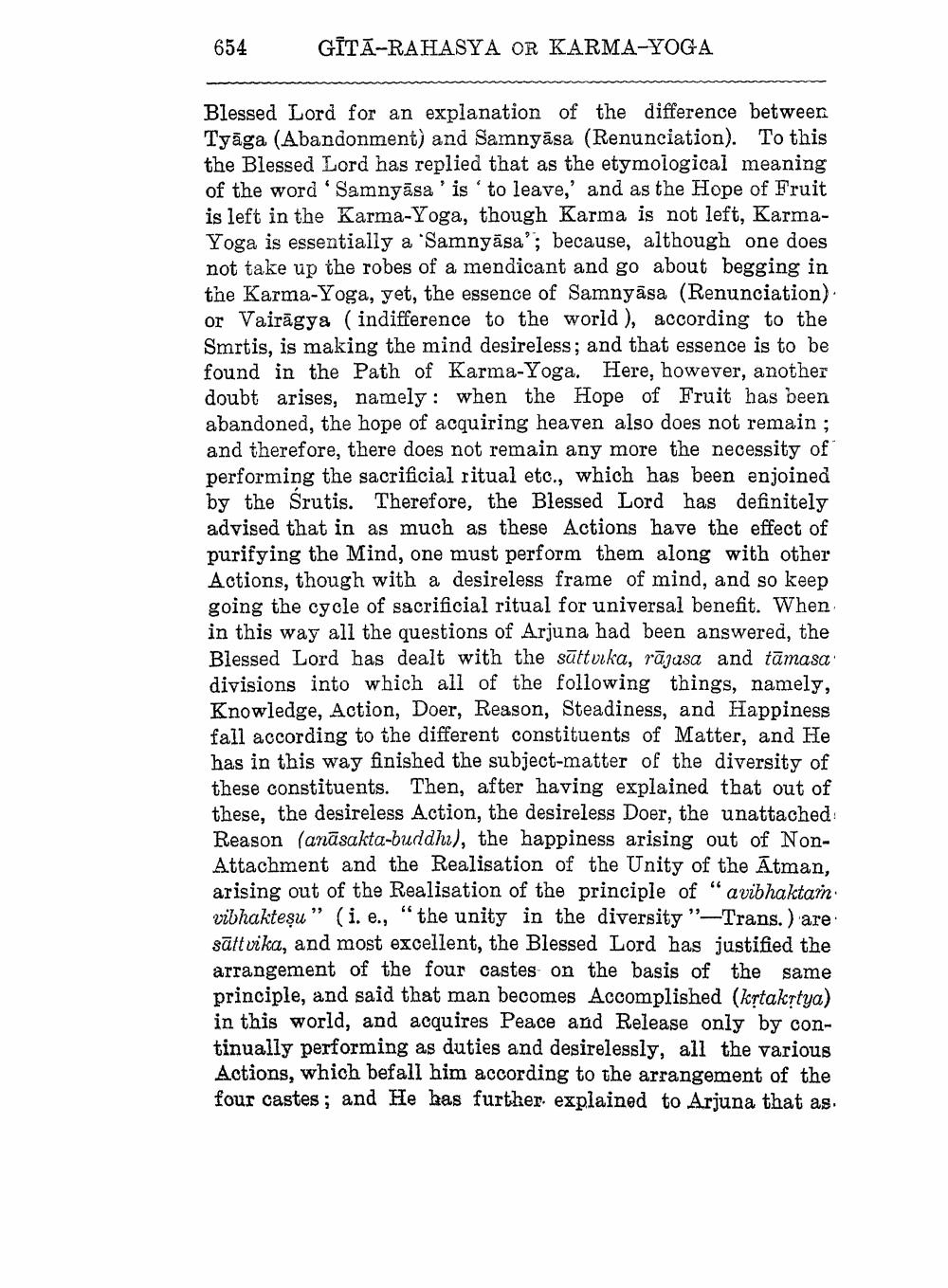________________
654
GITĀ-RAHASYA OR KARMA-YOGA
Blessed Lord for an explanation of the difference between Tyāga (Abandonment) and Samnyāsa (Renunciation). To this the Blessed Lord has replied that as the etymological meaning of the word 'Samnyāsa ' is to leave,' and as the Hope of Fruit is left in the Karma-Yoga, though Karma is not left, KarmaYoga is essentially a Samnyāsa'; because, although one does not take up the robes of a mendicant and go about begging in the Karma-Yoga, yet, the essence of Samnyāsa (Renunciation). or Vairāgya (indifference to the world ), according to the Smrtis, is making the mind desireless; and that essence is to be found in the Path of Karma-Yoga. Here, however, another doubt arises, namely: when the Hope of Fruit has been abandoned, the hope of acquiring heaven also does not remain; and therefore, there does not remain any more the necessity of performing the sacrificial ritual etc., which has been enjoined by the Srutis. Therefore, the Blessed Lord has definitely advised that in as much as these Actions have the effect of purifying the Mind, one must perform them along with other Actions, though with a desireless frame of mind, and so keep going the cycle of sacrificial ritual for universal benefit. When in this way all the questions of Arjuna had been answered, the Blessed Lord has dealt with the sattuika, rājasa and tāmasa divisions into which all of the following things, namely, Knowledge, Action, Doer, Reason, Steadiness, and Happiness fall according to the different constituents of Matter, and He has in this way finished the subject-matter of the diversity of these constituents. Then, after having explained that out of these, the desireless Action, the desireless Doer, the unattached Reason (anāsakta-buddhi), the happiness arising out of NonAttachment and the Realisation of the Unity of the Atman, arising out of the Realisation of the principle of “avibhaktarn vibhakteņu" (i. e., "the unity in the diversity "-Trans.) are sätt vika, and most excellent, the Blessed Lord has justified the arrangement of the four castes on the basis of the same principle, and said that man becomes Accomplished (krtakrtya) in this world, and acquires Peace and Release only by continually performing as duties and desirelessly, all the various Actions, which befall him according to the arrangement of the four castes; and He has further explained to Arjuna that as.




